One of the officers told me ‘I will sell your passport’ and hit me with the baton
| 15.12.2021 | Lavara (GR) Karayusuflu (TR) | josoor | 41.2699615, 26.38509 | Greece | Turkey | yes | yes | yes | yes | no | no | no | 4 - 60 | 70 | Afghanistan, Pakistan, Syria, Morocco, Algeria, Somalia, South Sudan | detention, no translator present, denial of food/water, personal belongings taken | 31 | beating (with batons/hands/other), forcing to undress, theft of personal belongings, reckless driving | Approximately 31 officers in total. 2 Greek officers in blue uniforms, 12 in olive green uniform, 2 officers in all blue uniform and approx 11 in all black uniform with blue armbands and 4 plain clothing. 1 military truck, 1 police vehicle, 1 white unmarked van, and 1 red unmarked van. Turkish, Arabic, English and Greek spoken. |
At nearly midnight on December the 15th, the respondent - a 23-year-old South Sudanese man - and 69 other people on the move were pushed back from Greece to Turkey. The respondent confirmed that the likely point of pushback was Lavara, Greece to Karayusuflu, Turkey. Six women and 10 minors were involved.
Two days prior, the respondent and one other 37-year-old travel companion arrived in Edirne. Following a day’s rest and preparation, the two South Sudanese men headed towards the Turkish/Greek border, crossing the border to Greek soil at around 23:00 on the 14th. The two walked for 30 kilometres through the forest to the Greek/Bulgarian border. They continued through the day and night taking only short rests. On the 15th, their route was obstructed by a reportedly impassable river near Kyprinos. Deviating from the intended path, the men found themselves in agricultural land. Once reaching the border fence, markings suggested that the area was restricted to military personnel, which was incentive enough for the pair to find another route across. Yet, their chance to cross into Bulgaria was stopped by the reported arrival of Greek officers.
At around 18:00 two cars reportedly approached the men from different fronts. Once stopped, the respondent recounted that two officers got out of a white-blue vehicle (see Image 1) and three officers out of a camouflage vehicle (see Image 2), that he assumed was military. The respondent further described that the three personnel reportedly carried firearms and wore camouflage uniforms with Greek flags. The two other officers were described to be wearing all blue uniforms (see Image 3), including a Greek flag on their shoulders. Addressing the men in English, the two officers reportedly asked where the two men were from and to describe their crossing point into Greece. At the officer's request, papers were handed over and phones unlocked. Only their IDs were returned. At this point, the respondent told one of the officers that he wanted to claim asylum, to which the officer responded, “Yes, yes…sure.” The two men sat on the ground, waiting for approximately 30 minutes before another vehicle arrived. The two men were then loaded into the trunk of the unmarked, white van. Inside, the respondent reported that they joined three other Moroccan men aged 23 to 25 years old - one of whom told the respondent that he had been caught near Vyssa, Greece. Once loaded into the van, the five men were unknowingly driven for approximately one hour to a Greek detention site. The time was around 19:00.
[caption id="attachment_19350" align="alignnone" width="600"]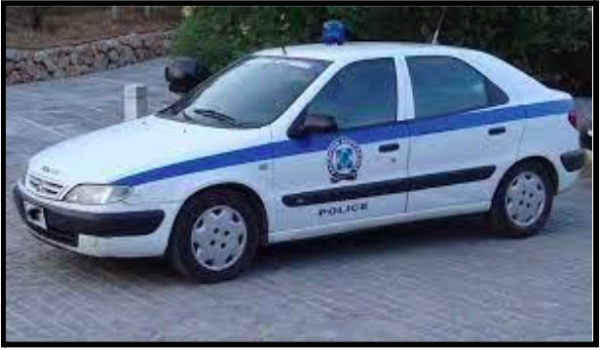 Image 1: Greek police car (Source: https://greekcitytimes.com/2020/01/28/greek-police-chase-down-car-syrians-macedonia/)[/caption]
[caption id="attachment_19351" align="alignnone" width="600"]
Image 1: Greek police car (Source: https://greekcitytimes.com/2020/01/28/greek-police-chase-down-car-syrians-macedonia/)[/caption]
[caption id="attachment_19351" align="alignnone" width="600"]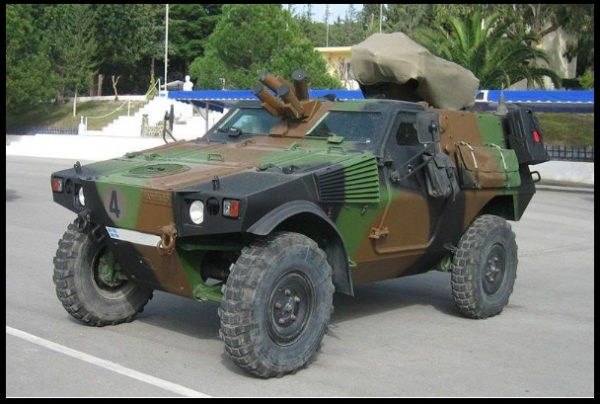 Image 2: Greek Armoured Wheeled Vehicle (Panhard VBL) (Source: https://en.wikipedia.org/wiki/V%C3%A9hicule_Blind%C3%A9_L%C3%A9ger)[/caption]
[caption id="attachment_19353" align="alignnone" width="600"]
Image 2: Greek Armoured Wheeled Vehicle (Panhard VBL) (Source: https://en.wikipedia.org/wiki/V%C3%A9hicule_Blind%C3%A9_L%C3%A9ger)[/caption]
[caption id="attachment_19353" align="alignnone" width="600"]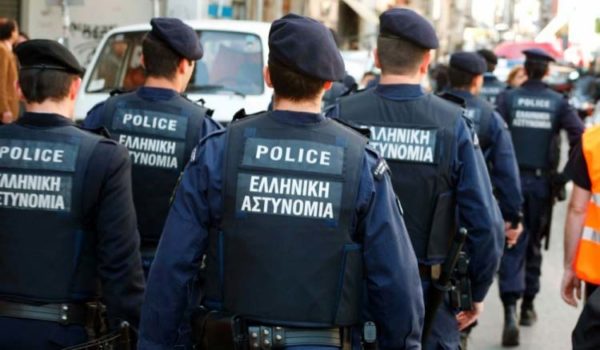 Image 3: Hellenic police (Source: https://www.einnetwork.org/ein-voices/2018/12/12/ill-treatment-by-police-officers-in-greece-the-makaratzis-group-of-cases)[/caption]
For around one hour, the group of five were driven initially along paved roads then clearly unpaved as they reached their next destination. When the trunk doors were opened, the respondent immediately saw a corridor. As the men spilled out of the trunk, one officer reportedly hit each of them with a plastic baton, demanding that they move faster into the adjoining small room. Inside the building, the respondent met five new officers, each of whom wore an olive green uniform with ‘police’ written on their chests. The physical space was reportedly aging with an old, dirty interior. The respondent reported that two of the officers then forced the five men to strip before they were searched from head to toe. When finished, the officers returned only their shoes, shirts, and trousers, demanding the men to get dressed. With no translators present, the officer’s words were completely missed by two of the men who spoke no English. Then the respondent explained that the officers began beating all five men with plastic batons - focusing their blows on the two men who spoke no English.
“The Algerian guy with us…he didn’t understand English. The officer kept punching him in his face until he started bleeding,”
After the beating subsided, the officers herded the men into a tiny cell. As they were taken from one room to another, the respondent reported that: “One of the officers told me ‘I will sell your passport’ and hit me with the baton.” The time was approximately 20:30.
The respondent described the cell as no larger than four by five meters with a dirty, coral-coloured ground. There were two bunk bed frames and a toilet. Inside the cell, he explained that he met around 69 other people, reportedly aged four to 60 years old from Syria, Pakistan, Afghanistan, Somalia, Morocco, and Algeria. Among them were six women and 10 minors. One of the elderly women shared with the respondent that she was beaten earlier by one of the officers after she refused to let him search her. He purportedly responded to the refusal by beating her with a branch.
At around 22:30 the group of now 70 people were released from the cell by two officers dressed in black with a distinct, blue armband. Outside the cell, the respondent met approximately 13 additional officers, seven of whom were wearing olive-green uniforms and six dressed in civilian clothing. All officers reportedly wore balaclavas. In the front of the detention site, the respondent found two vans - one red Ford (see Image 4) and one white Mercedes van. The respondent said that the officers repeatedly hit the men and the minors as they loaded into the vans, screaming and cursing at them in English. At this point, no other language was spoken either to the group members or among the officers than English. Once inside the trunk of the van, the respondent counted approximately 40 people, with the remaining 30 having been piled into the second vehicle. The trunk was described as no larger than two by four meters.
[caption id="attachment_19357" align="alignnone" width="600"]
Image 3: Hellenic police (Source: https://www.einnetwork.org/ein-voices/2018/12/12/ill-treatment-by-police-officers-in-greece-the-makaratzis-group-of-cases)[/caption]
For around one hour, the group of five were driven initially along paved roads then clearly unpaved as they reached their next destination. When the trunk doors were opened, the respondent immediately saw a corridor. As the men spilled out of the trunk, one officer reportedly hit each of them with a plastic baton, demanding that they move faster into the adjoining small room. Inside the building, the respondent met five new officers, each of whom wore an olive green uniform with ‘police’ written on their chests. The physical space was reportedly aging with an old, dirty interior. The respondent reported that two of the officers then forced the five men to strip before they were searched from head to toe. When finished, the officers returned only their shoes, shirts, and trousers, demanding the men to get dressed. With no translators present, the officer’s words were completely missed by two of the men who spoke no English. Then the respondent explained that the officers began beating all five men with plastic batons - focusing their blows on the two men who spoke no English.
“The Algerian guy with us…he didn’t understand English. The officer kept punching him in his face until he started bleeding,”
After the beating subsided, the officers herded the men into a tiny cell. As they were taken from one room to another, the respondent reported that: “One of the officers told me ‘I will sell your passport’ and hit me with the baton.” The time was approximately 20:30.
The respondent described the cell as no larger than four by five meters with a dirty, coral-coloured ground. There were two bunk bed frames and a toilet. Inside the cell, he explained that he met around 69 other people, reportedly aged four to 60 years old from Syria, Pakistan, Afghanistan, Somalia, Morocco, and Algeria. Among them were six women and 10 minors. One of the elderly women shared with the respondent that she was beaten earlier by one of the officers after she refused to let him search her. He purportedly responded to the refusal by beating her with a branch.
At around 22:30 the group of now 70 people were released from the cell by two officers dressed in black with a distinct, blue armband. Outside the cell, the respondent met approximately 13 additional officers, seven of whom were wearing olive-green uniforms and six dressed in civilian clothing. All officers reportedly wore balaclavas. In the front of the detention site, the respondent found two vans - one red Ford (see Image 4) and one white Mercedes van. The respondent said that the officers repeatedly hit the men and the minors as they loaded into the vans, screaming and cursing at them in English. At this point, no other language was spoken either to the group members or among the officers than English. Once inside the trunk of the van, the respondent counted approximately 40 people, with the remaining 30 having been piled into the second vehicle. The trunk was described as no larger than two by four meters.
[caption id="attachment_19357" align="alignnone" width="600"]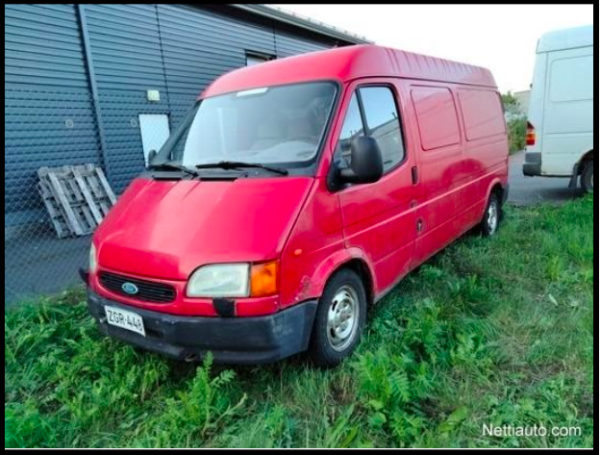 Image 4: Unmarked Red Ford Van (https://www.nettiauto.com/ford/transit/12356289)[/caption]
For around 20 minutes the respondent and around 69 others were driven from the detention site to the Evros/Meriç River. Through a small hole in the trunk, the respondent could see only a few lights on the road as the driver moved from paved to unpaved roads. He described further that “the van was driving too fast….it [even] drifted at one point and we all flipped inside the van. We thought the van was also going to flip.”
When the van finally stopped, all 70 people were unloaded and told to stand in a line. In front of them stood 12 officers: three reportedly wearing camouflage uniforms with Greek flags on the shoulders (see Image 4), four dressed in all black (see Image 8), and five wore only civilian clothing. The respondent recalled that two of the men in the black uniforms were the same as those at the detention site. Excluding the three in military uniforms, all officers wore balaclavas. Those in camouflage reportedly carried firearms and spoke Turkish with the officers wearing civilian clothing. Once in line, the respondent explained that the officers in civilian clothing began beating everyone again in the group - including the women and minors.
Each group member was again asked to confirm their country of origin then were searched. No female officers were present. All 70 people were then rounded up and told to get into what the respondent described as a small grey and white plastic boat nearby. Along with two of the officers dressed in plain clothing, the respondent and eight other additional male and female people climbed into the boat. Steering the plastic dinghy only with paddles, the two officers drove the group up to the middle of the river, at which point every person was reportedly told to jump. While in the boat, the two officers dressed in plain clothing reportedly addressed the group in Arabic. After wading through the freezing water reaching nearly their chests, the respondent and the rest of the group landed back on Turkish soil. Cold and exhausted, he made the 13-hour journey by foot back to Edirne.
At no point during his captivity was the respondent offered food, water, or medical support.
[caption id="attachment_19360" align="alignnone" width="266"]
Image 4: Unmarked Red Ford Van (https://www.nettiauto.com/ford/transit/12356289)[/caption]
For around 20 minutes the respondent and around 69 others were driven from the detention site to the Evros/Meriç River. Through a small hole in the trunk, the respondent could see only a few lights on the road as the driver moved from paved to unpaved roads. He described further that “the van was driving too fast….it [even] drifted at one point and we all flipped inside the van. We thought the van was also going to flip.”
When the van finally stopped, all 70 people were unloaded and told to stand in a line. In front of them stood 12 officers: three reportedly wearing camouflage uniforms with Greek flags on the shoulders (see Image 4), four dressed in all black (see Image 8), and five wore only civilian clothing. The respondent recalled that two of the men in the black uniforms were the same as those at the detention site. Excluding the three in military uniforms, all officers wore balaclavas. Those in camouflage reportedly carried firearms and spoke Turkish with the officers wearing civilian clothing. Once in line, the respondent explained that the officers in civilian clothing began beating everyone again in the group - including the women and minors.
Each group member was again asked to confirm their country of origin then were searched. No female officers were present. All 70 people were then rounded up and told to get into what the respondent described as a small grey and white plastic boat nearby. Along with two of the officers dressed in plain clothing, the respondent and eight other additional male and female people climbed into the boat. Steering the plastic dinghy only with paddles, the two officers drove the group up to the middle of the river, at which point every person was reportedly told to jump. While in the boat, the two officers dressed in plain clothing reportedly addressed the group in Arabic. After wading through the freezing water reaching nearly their chests, the respondent and the rest of the group landed back on Turkish soil. Cold and exhausted, he made the 13-hour journey by foot back to Edirne.
At no point during his captivity was the respondent offered food, water, or medical support.
[caption id="attachment_19360" align="alignnone" width="266"]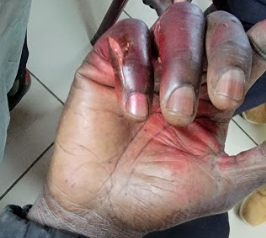 Injuries sustained by the respondent, inflicted by Greek authorities, during the pushback[/caption]
Injuries sustained by the respondent, inflicted by Greek authorities, during the pushback[/caption]
